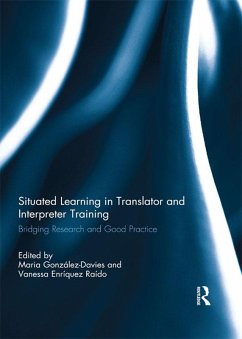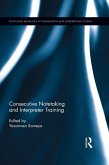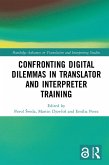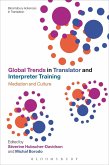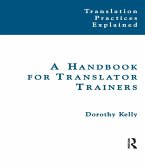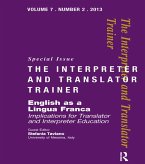Situated Learning is generally understood as a context-dependent approach to translator and interpreter training under which learners are exposed to real-life and/or highly simulated collaborative work environments and tasks, both inside and outside the classroom. Ultimately, Situated Learning seeks to enhance learners' capacity to think and act like professionals. This book sets out to gauge the extent to which different factors influence the implementation of Situated Learning models in various teaching and learning contexts. It presents an understanding of Situated Learning that goes beyond previous interpretations of this notion, traditionally dominated by the discussion of pedagogical practices in authentic, i.e. real-world, or semi-authentic professional settings. This wider remit of Situated Learning encompasses previously underrepresented contextual factors pertaining to translation traditions, historical trends, community beliefs and customs, socio-economic constraints, market conditions, institutional practices, budgetary issues, or resource availability. The pedagogical considerations of these key aspects make this book particularly useful for both novice and seasoned teachers of translation and interpreting with an interest in informed practical advice on how to implement the principles of Situated Learning in collaborative teaching and learning environments that seek to promote translators' and/or interpreters' professional competence. This book was originally published as a special issue of
The Interpreter and Translator Trainer.
Dieser Download kann aus rechtlichen Gründen nur mit Rechnungsadresse in A, B, BG, CY, CZ, D, DK, EW, E, FIN, F, GR, HR, H, IRL, I, LT, L, LR, M, NL, PL, P, R, S, SLO, SK ausgeliefert werden.

